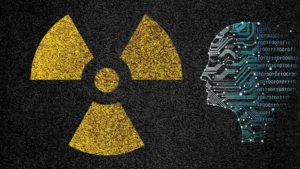Alzheimer Disease

Alzheimer disease (pronounced “alz-HAI-mirs”) is a brain condition that causes a progressive decline in memory, thinking, learning and organizing skills. It eventually affects a person’s ability to carry out basic daily activities. Alzheimer disease (AD) is the most common cause of dementia.
The symptoms of Alzheimer’s worsen over time. Researchers believe the disease process may start 10 years or more before the first symptoms appear. AD most commonly affects people over the age of 65.
Dementia describes the state of a person’s mental function. It’s not a specific disease. It’s a decline in mental function from a previously higher level that’s severe enough to interfere with daily living.
A person with dementia has two or more of these specific difficulties, including a change or decline in:
- Memory.
- Reasoning and handling of complex tasks.
- Language.
- Understanding visual form and space relationship.
- Behavior and personality.
Dementia ranges in severity. In the mildest stage, you may notice a slight decline in your mental functioning and require some assistance on daily tasks. At the most severe stage, a person depends completely on others for help with simple daily tasks.
Dementia develops when infections or diseases impact the parts of your brain involved with learning, memory, decision-making or language. Alzheimer’s disease is the most common cause of dementia, accounting for at least two-thirds of dementia cases in people 65 and older.
Other common causes of dementia include:
- Vascular dementia.
- Dementia with Lewy bodies.
- Frontotemporal dementia.
- Dementia due to Parkinson’s disease.
Alzheimer’s disease mainly affects people over age 65. The higher your age over 65, the more likely you’ll develop Alzheimer’s.
Some people develop Alzheimer’s disease before age 65 — typically in their 40s or 50s. This is called early-onset Alzheimer disease. It’s rare. Less than 10% of AD cases are early-onset.
Alzheimer’s disease is common. It affects approximately 24 million people across the world. One in 10 people older than 65 and nearly a third of people older than 85 have the condition.
Alzheimer’s disease organizations and healthcare providers use various terms to describe the stages of Alzheimer’s disease based on symptoms.
While the terms vary, the stages all follow the same pattern — AD symptoms progressively worsen over time.
No two people experience AD in the same way, though. Each person with Alzheimer’s disease will progress through the stages at different speeds. Not all changes will occur in each person. It can sometimes be difficult for providers to place a person with AD in a specific stage as stages may overlap.
Some organizations and providers frame the stages of Alzheimer’s disease in terms of dementia:
- Preclinical Alzheimer’s disease
- Mild cognitive impairment (MCI) due to Alzheimer’s disease.
- Mild dementia due to Alzheimer’s disease.
- Moderate dementia due to Alzheimer’s disease
- Severe dementia due to Alzheimer’s disease.
Other organizations and providers more broadly explain the stages as:
- Mild.
- Moderate.
- Severe.
Or
- Early.
- Middle.
- Late.


